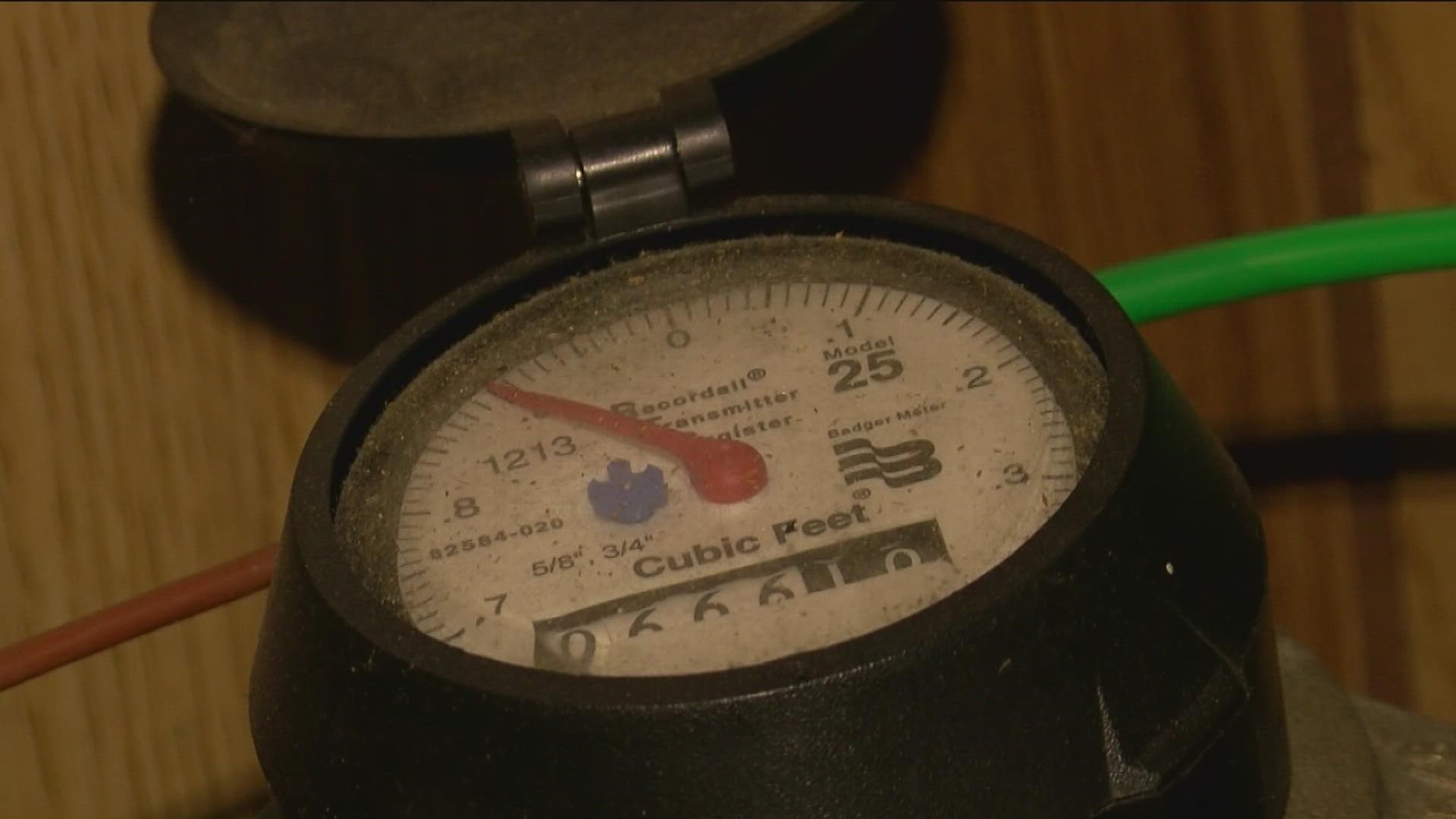TOLEDO, Ohio — The city of Toledo announced plans back in July to upgrade thousands of home water meters to a new smart system to prevent inaccurate water bills.
The installation was promised to be free, quick and unintrusive.
However, Brittni Riggs, a mother of five in west Toledo, said she was prepared for a hassle-free process as promised, but when the installer took a look at the water valves in her basement, she was in for a rude awakening.
It all started with a letter from the city left on the door of Riggs' home.
"It said we need to get you your water replacement because otherwise, we'll turn your water off," Riggs said.
Left with no other option, Riggs said they immediately scheduled a time for installation, but after only two minutes of looking at the system, the installer said more needed to be done.
"I learned that we had a bad inlet valve and the cost for replacement is anywhere from $350 to $800," she said.
With five mouths to feed, Riggs said it was a price tag her family wasn't prepared to handle and asked if it was something the city intended to cover.
But the installer said the price falls squarely on the homeowner, Riggs said.
According to Riggs, the city only gave them one alternative: getting approval to dig up their landscaped yard and find the curb stop valve, which controls the water running to a home or building from the city's water main.
Doug Stephens, Toledo's director of public transportation, is leading the water meter project for the city and said Riggs' inlet valve is an issue with their private system.
"If it was something that we caused, we're gonna go and do that," Stephens said. "But if you have a leaking valve or a valve that won't turn at your house and it needs fixed, it's probably costing you money, and you should be fixing that."
Stephens said those who don't want to pay for the installation don't have to and need to allow the city access to the curb stop valve instead.
He said the process doesn't tear up the entire yard like Riggs may have envisioned and just requires a paint can-sized hole near the sidewalk.
"Early on, there were a few that got told, 'hey, you're gonna need to fix this before we come back,'" Stephens said. "But that was before we had implemented all of our procedures to allow them to shut the curb valve off and be able to do the work with the water shut off to the home. So I don't see this happening a lot, it could come up, but we're doing everything we can on our end to reduce that to near zero."
Stephens said while it might not be an elegant solution, the benefits from the new meters will help both residents and the city.
"The current meters have mechanical parts," he said. "The parts basically slow down, wear out and you don't get accurate reads, so we're not charging the appropriate volume of water. And ultimately, when we're not charging as much water, could result in rate increases. So you'll be getting an accurate bill based on what you use."
Stephens said about 4,000 installations have been completed of the 116,000 meters the city intends to install across Toledo. Currently, areas in west Toledo are up for service first. And Stephens said the entire project should be complete by spring of 2024.

